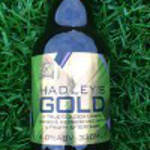
Created by Tysan Toussant and Tim Coombs, the young American company, Bionic Yarn, has set itself the task of cleaning the oceans, by giving new life to plastic waste thrown there. The firm has developed a manufacturing process that transforms plastic waste into textile fibres - the plastic is first reduced to flakes, and then these are mixed and worked to produce fibres. Bionic Yarn has developed two types of textile fibres, the "HLX" and the "DPX", for different uses. "DPX" is a mesh of cotton and fibres from plastic. Graphics on the Bionic Yarn website show the different manufacturing stages in detail.
 Once the process had been started, all that was left was for the company to make themselves known and develop partnerships with major brands, to expand this ecological process on a larger scale. Thus the performer, Pharell Williams, has participated in the company as creative director and has worked on the "Raw for the oceans" collection. Since then, partnerships have been signed with ready-to-wear brands including G-Star Raw, who will be the first to sell clothes made from plastic materials.
Once the process had been started, all that was left was for the company to make themselves known and develop partnerships with major brands, to expand this ecological process on a larger scale. Thus the performer, Pharell Williams, has participated in the company as creative director and has worked on the "Raw for the oceans" collection. Since then, partnerships have been signed with ready-to-wear brands including G-Star Raw, who will be the first to sell clothes made from plastic materials.
The "Raw for the oceans" collection will be available exclusively in the G-Star Raw e-shop from 6 September. It will include jackets, jeans, sweaters, t-shirts and accessories all made from Bionic Yarn fibre. On the price side, t-shirts will retail at 49.90 euros with jeans at 149.90 euros. Larger items such as coats will be sold between 149 and 269.90 euros.
To collect its raw materials, i.e. plastic, Bionic Yarn has joined the "Vortex" ocean cleaning project from the "Parley for the Oceans" think tank. This name comes from the artificial waste continents formed in the middle of our planet's oceans. The one located in the North Pacific Ocean alone includes more than 18,000 tonnes of plastic. The name Vortex comes from the fact that this waste collects at precise locations in the oceans, and stays there due to the different marine currents, with only a small proportion of the waste ending up along the coasts.
Beyond the ecological problem caused by the disposal of plastic waste in the environment, it also affects marine wildlife and birds. The light degrades plastic bottles, caps and other waste, reducing them to small pieces that can be confused with food by marine wildlife or birds flying over the oceans, causing their deaths. These small pieces of plastic, when ingested by fish find themselves in microscopic amounts in food products from the sea, which can then be found on our plates."
News in the same category
As well as being a simple carrier bag, the "Rag Bag" becomes an envelope to send old clothes to charities. This initiative by the ready-to-wear brand, Uniforms for the Dedicated also has an ecological aim.
Tony Hadley, frontman of the 80's band Spandau Ballet, is used to perform smooth refreshing pop songs, turning them into gold. This time, Gold is beer, not music.
Actually, it's not just the Cambridge Satchel men store that's new, it's the Men's collection altogether. To celebrate it, the bag manufacturer just opened a dedicated place in London.
Can you imagine getting into a shop, collect items of your preference, and walk out?




